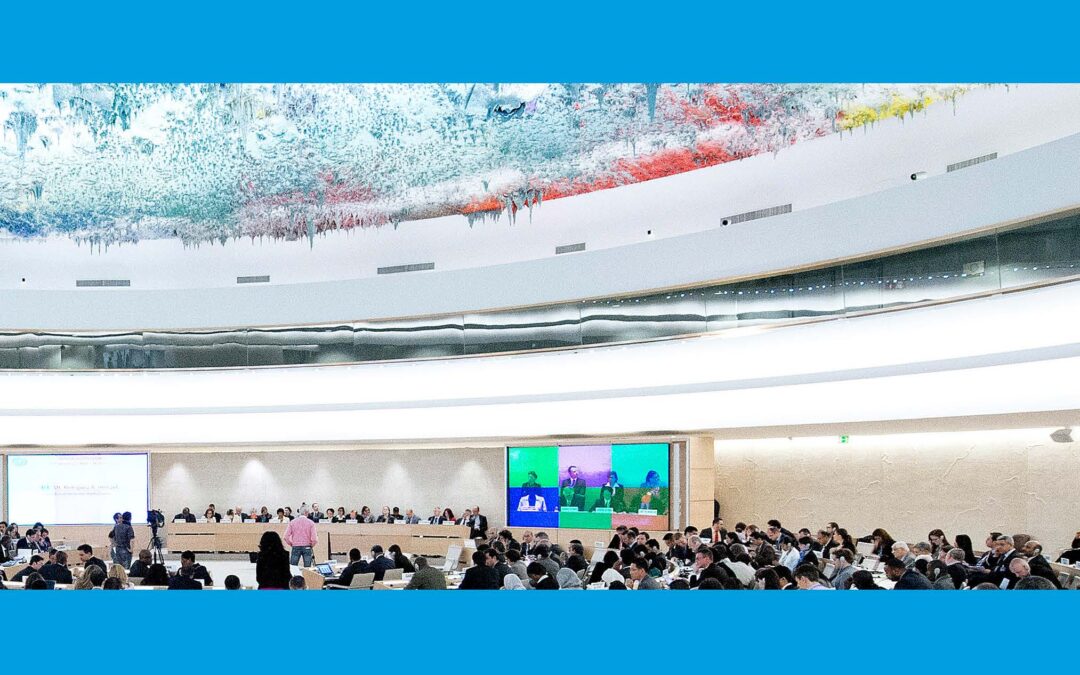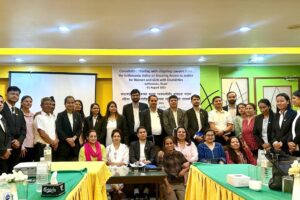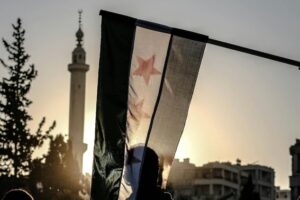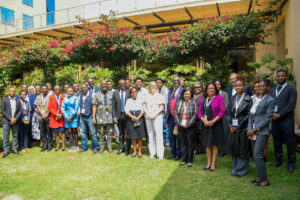
Sep 11, 2013
TRIAL (Track Impunity Always) and the ICJ presented a new publication on the potentials of Geneva-based human rights bodies in the fight against impunity and in promoting accountability of individuals responsible for crimes under international law and gross human rights violations.
The publication Promoting Accountability through the Human Rights Bodies in Geneva focuses on bodies such as the Human Rights Council, the Universal Periodic Review (UPR), Special Procedures and Treaty Bodies.
The report proposes initiatives through which States, civil society and other stakeholders can better engage the Human Rights Council and other Geneva-based human rights mechanisms promoting better accountability. They include:
- Ensuring that the Human Rights Council focuses more consistently on accountability, for instance through the introduction of a periodic resolution on international justice and accountability and with greater attention given to international criminal law and the International Criminal Court;
- Ensuring that accountability-related action points are systematically taken up by the Human Rights Council in thematic and country-specific resolutions, as well as in recommendations made within the UPR mechanism;
- Ensuring that Special Procedures and Commissions of Inquiry engage on a deeper basis with accountability-related issues, formulating appropriate recommendations and conducting studies where needed and appropriate.
“Although the UN human rights system has made great strides over the years in the promotion and protection of human rights, one area in which it has fallen short of its potential is in the area of combating impunity,” said Ian Seiderman, ICJ’s Legal & Policy Director. “As long as perpetrators of gross human rights violations avoid facing justice, human rights can never be fully realized.”
Gabriella Citroni, TRIAL’s Senior Legal Adviser added: “promoting and mainstreaming issues related to the fight against impunity requires cooperation between all stakeholders, in particular States and civil society organizations. The publication aims at fostering joint efforts to make accountability a key issue in the discussions and activities undertaken by Geneva-based human rights bodies.”
Contacts
Gabriella Citroni, Senior Legal Adviser, TRIAL,: +41 22 321 61 10 ; email: gabriella.citroni(a)trial-ch.org
Ian Seiderman, Director, Legal & Policy, ICJ, t: +41 22 979 3837; email: ian.seiderman(at)icj.org
Universal-ICJTRIAL-Geneva bodies-impunity-Publications-report-2013 (full text of version for States in pdf)
Universal-ICJTRIAL-Geneva bodies-impunity-Publications-report.2013 (full text of version for NGOs in pdf)
Photo: UN/Jean-Marc Ferré

Sep 10, 2013
The ICJ today called for better regulation of private military and security companies (PMSCs) in national and international law.
Noting gaps identified in the regulation of PMSCs in the annual report to the UN by the Working Group on the use of mercenaries as a means of violating human rights and impeding the exercise of the right of peoples to self-determination, the ICJ encouraged the Working Group to:
- Publish national laws of the concerned countries and submit this and additional detailed information and analysis to the Open Ended Intergovernmental Working Group on a possible international regulatory framework for PMSCs, which will meet for its third session in December 2013; and
- Focus in future phases of its study on the availability, accessibility and effectiveness of accountability and redress mechanisms, including judicial mechanisms, in national laws.
The statement was made during an Interactive Dialogue with the Working Group (under Item 3 of the Human Rights Council’s agenda) during the 24th regular session of the Council (9 to 27 September 2013).
HRC24-OralStatement-WGMercenaries-LegalSubmission-2013 (download full statement by the ICJ)
A-HRC-24-45 (download the annual report of the Working Group)

Aug 22, 2013 | Advocacy, Non-legal submissions
With other nongovernmental organizations, the ICJ calls on the Human Rights Council to select candidates for Special Procedure mandates on the basis of technical, professional and other objective requirements.
Ahead of the 24th session of the Human Rights Council (9 to 27 September 2013), several NGOs, including the ICJ, today joined in submitting written statements to the UN concerning the selection of candidates for membership in the Working Group on Arbitrary Detention and the Working Group on Enforced and Involuntary Disappearances and for the mandate-holder of the Special Rapporteur on the situation of human rights defenders. The statements identify a checklist intended as an interpretive aid for the selection of candidates based on qualifications and skills; relevant expertise; established competence; and flexibility and availability of time.
HRC24-JointWrittenStatement-SelectionCriteriaWGAD-NonLegalSubmission-2013 (download full statement concerning selection criteria for the Working Group on Arbitrary Detention)
HRC24-JointWrittenStatement-SelectionCriteriaWGEID-NonLegalSubmission-2013 (download full statement concerning selection criteria for the Working Group on Enforced and Involuntary Disappearances)
HRC24-JointWrittenStatement-SelectionCriteriaSRHRDs-NonLegalSubmission-2013 (download full statement concerning selection criteria for the Special Rapporteur on the situation of human rights defenders)

Aug 22, 2013
The ICJ calls on members of the Human Rights Council, collectively and individually, to ensure that the establishment of truth commissions fully complies with the internationally recognized right of victims and society to know the truth.
Ahead of the 24th session of the Human Rights Council (9 to 27 September 2013), the ICJ today submitted a written statement to the UN identifying seven minimum criteria that must be adhered to for truth commissions to serve as effective mechanisms that contribute to the respect of the right to truth. Focusing on core aspects of four of these criteria, the ICJ explained that:
1. Truth commissions must be given a mandate that reflects the relevant material, personal, temporal and territorial aspects of the conflict or situation.
2. Safeguards of independence must be in place such that the selection of commissioners is undertaken through a non-discriminatory, inclusive, transparent process involving public consultation; ensuring appointment of a representative body based on candidates’ expertise, integrity, moral authority and demonstrated commitment to human rights and the rule of law; and allowing for removal in the case of incapacity, death, conflict of interest or misconduct.
3. Explicit procedures must be in place to give effect to victims’ rights to access to effective remedies and reparation, including appropriate compensation, restitution, rehabilitation and measures of satisfaction.
4. The operation of truth commissions must be in compliance with the State’s obligation to investigate, prosecute and punish acts involving gross human rights violations and serious violations of international humanitarian law, excluding the possibility of granting amnesties or other measures that result in impunity for individuals responsible for serious crimes under international law.
HRC24-TruthCommissions-LegalSubmission-2013 (download full written statement in PDF)

Aug 12, 2013
The Third Geneva Forum for Judges and Lawyers, which took place on 13 December 2012, focused on the role of the domestic court in improving access to justice. The report is now online.
In three sessions, participants discussed how domestic courts grapple with the tension of applying universal standards in the domestic context; the role of the lawyer in strengthening the protection of international human rights law and standards through domestic litigation; and how judges compare national integration of various international human rights law and standards.
Independence of the judiciary-Geneva Forum 2012-Publications-report-2013 (full text in pdf)









